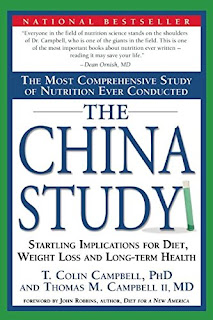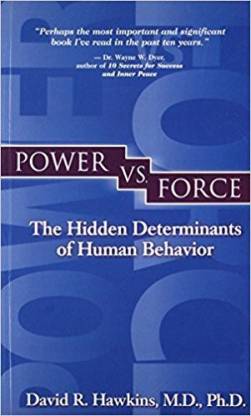THE CHINA STUDY 19 JUN 2017 - T COLIN CAMPBELL AND THOMAN M CAMPBELL II MD
COVID 19 DAYS - THE CHINA STUDY 19 JUN 2017
T COLIN CAMPBELL PHD AND THOMAS M CAMPBELL II MD
The book is based on one of the largest comprehensive studies of human nutrition ever conducted, launched via a partnership between Cornell University, Oxford University, and the Chinese Academy of Preventative Medicine, with data collected over a span of 20 years. In The China Study, T. Colin Campbell, PhD, and his son, Thomas M. Campbell II, MD, discuss and analyze the results from the study (and other influential nutrition research) and recommend their protocol for the best diet for long-term health.
Conclusions in brief from the book
1. American health statistics are scary. The researchers spend a lot of time citing frightening stats on obesity, diabetes, and heart disease that point to the need for an American diet shake-up.
2. The conclusions are based on a lot of data. The study they created included 367 variables, 65 counties in China, and 6,500 adults (who completed questionnaires, blood tests, etc.).
3. Animal protein promotes the growth of cancer. Dr. Campbell says that in multiple, peer-reviewed animal studies, researchers discovered that they could actually turn the growth of cancer cells on and off by raising and lowering doses of casein, the main protein found in cow’s milk.
4. You should be worried about poor nutrition more than pesticides. The food you eat affects the way your cells interact with carcinogens, making them more or less dangerous, the authors explain. “The results of these, and many other studies, showed nutrition to be far more important in controlling cancer promotion than the dose of the initiating carcinogen,” they state.
5. Heart disease can be reversed through nutrition. The authors share the work of other respected physicians that they say supports their own data’s conclusions, and some of the most interesting are on heart disease. Caldwell B. Esselstyn, Jr., MD, a physician and researcher at the best cardiac center in the country, The Cleveland Clinic, treated 18 patients with established coronary disease using a whole food, plant-based diet. Not only did the intervention stop the progression of the disease, but 70 percent of the patients saw an opening of their clogged arteries.
6. Carbs are not always the enemy. Highly-processed, refined carbohydrates are bad for you, but plant foods are full of healthy carbs, the authors say. Research shows that diets like Atkins or South Beach can have dangerous side effects. While they may result in short-term weight loss, you’ll be sacrificing long-term health.
7. Cancer isn’t the only disease plants can ward off. It’s not just cancer and heart disease that respond to a whole food, plant-based diet, the authors say. Their research showed it may also help protect you from diabetes, obesity, autoimmune diseases, bone, kidney, eye, and brain diseases.
8. You don’t have to tailor your diet for specific health benefits. Eating healthy can seem segmented—brocolli will prevent breast cancer, carrots are good for eyes, and by the way, did you get enough vitamin C today? “Nutrition that is truly beneficial for one chronic disease will support health across the board,” the authors explain.
9. You don’t need to eat meat. “There are virtually no nutrients in animal-based foods that are not better provided by plants,” the authors say. Protein, fiber, vitamins, minerals—you name it, they have got it , along with major health benefits.
10. The takeaway is simple: Eat plants for health. “People who ate the most animal-based foods got the most chronic disease. People who ate the most plant-based foods were the healthiest,” the authors state. Whether you’re going vegan or not, they suggest putting as many plants on your plate as possible at every meal.





Comments
Post a Comment